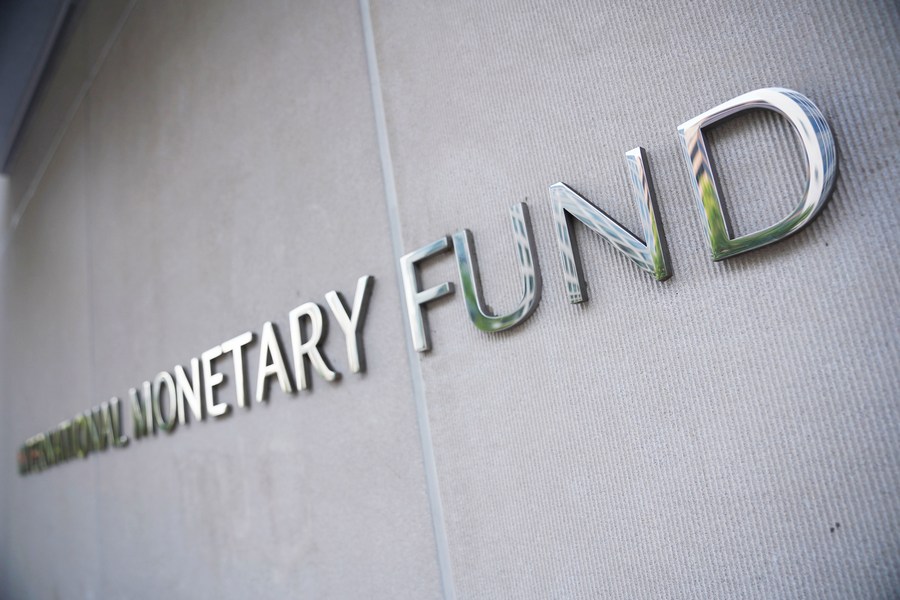IMF official says China responds 'forcefully' to COVID-19 with fiscal policy


WASHINGTON - China responded "forcefully" to COVID-19 with fiscal policy, which contributed significantly to its growth in 2020, an International Monetary Fund (IMF) official has said, calling for continued fiscal action to help rebalance the Chinese economy.
"There was quite a substantial emphasis on public investment, but also on support to households and firms. There were some measures of tax relief in the process," Vitor Gaspar, director of the IMF's fiscal affairs department, told Xinhua in a remote video interview earlier this week, commenting on China's fiscal policy amid the pandemic.
Looking ahead, in the government's plans, support will continue, Gaspar said, noting that there will be a "gradual reduction" in China's overall deficit over time, with a slowdown in the increase of public debt.
"This situation of a very persistent fiscal support by the Chinese government seems to be completely appropriate given the nature of the shock," Gaspar said.
The IMF official said fiscal policy can also help rebalancing the Chinese economy, noting that one concern around the performance of the Chinese economy in 2020 is the weakness of private consumption.
"Going forward, it would be important that private consumption would pick up. And so the dynamics of the Chinese economy would be based on the dynamism of internal Chinese demand," he said.
Noting that China has been upgrading its public finance framework over time "in quite a successful way," Gaspar said "that path should continue," urging the country to extend social safety nets and adjust tax policy to better support domestic consumption.
In the area of the allocation of resources, looking for "competitive neutrality" across the economy is extremely important, the IMF official said, adding that China should continue its decades-long reform on corporate tax and state-owned enterprises.
When asked to describe China's economic growth in 2020 in three key words, Gaspar told Xinhua that he would characterize it as "great so far," as the country has controlled the COVID-19, and has recovered "strongly" after experiencing economic loss at the beginning of the year.
China's National Bureau of Statistics recently reported that the country's gross domestic product (GDP) registered a year-on-year growth rate of 2.3 percent in 2020, becoming the only major economy with positive growth in the pandemic-ravaged year.
According to the latest update to its World Economic Outlook (WEO), the IMF projected that China's economy will grow by 8.1 percent in 2021, amid a partial and uneven global recovery.
"Going forward, there are still many challenges having to do with China's own domestic growth," Gaspar said. "Also some challenges that play out at the global level and where China's contribution is very important."
Noting that China has a role to play in forging global consensus, the IMF official said the world's second largest economy could contribute to global growth by boosting green investment, and facilitating the digitalization process, among others.
According to the IMF's Fiscal Monitor update released Thursday, global fiscal support reached nearly 14 trillion U.S. dollars as of end-December 2020, up by about 2.2 trillion dollars since October 2020.
"COVID-19 was an enormous disturbance to all countries around the world. Tax revenues have shrunk quite substantially," Gaspar said, calling such fast and strong fiscal actions "absolutely necessary" to help contain the pandemic and to avoid a financial crisis.
Together with economic contraction, such support has led to a rise in public debt and deficits, according to the Fiscal Monitor update. Average public debt worldwide approached 98 percent of GDP at the end of 2020, compared with 84 percent projected pre-pandemic for the same date.
When asked whether policymakers should be concerned about the ballooning public debt, the IMF official told Xinhua that one has always to be concerned about proper management of public finance risks, and to bear in mind public debt sustainability, but at this point in time, "the very first priority is to defeat the pandemic."
Gaspar said "clearly there is a general recognition that poor countries do need support," noting that the vaccination process is lagging behind for low income countries at this point in time.
"But of course COVID-19 will not be under control anywhere before it is under control everywhere. And investing in the vaccination process is probably the most profitable investment that one can carry out now in the world economy," he said.
The IMF official also urged policymakers to strike a "balance" between providing more short-term support to ensure a solid recovery and keeping debt at a manageable level over the longer term.
"The priority is to provide relief support, to provide lifelines, to make sure that support is there when it is needed," said the IMF official. "But in order for that to work well, it's very important that people have trust that the situation over the long run is under control."
"One should always think about economic activity and employment in the short run from the viewpoint of long run development, having a long run view helps a lot," Gaspar added.
According to the IMF's Fiscal Monitor update, fiscal policy should enable a green, digital, and inclusive transformation of the economy in the post-COVID-19 environment, with the priorities including investing in health systems, education, and infrastructure, helping people go back to work and move between jobs, as well as strengthening social protection systems.
In addition, policymakers should rethink tax systems to promote greater fairness and provide incentives to protect the environment, and cut wasteful spending, strengthen the transparency of spending initiatives, and improve governance practices to reap the full benefits of fiscal support.
"Governments need to win the vaccination race, respond flexibly to the changing economic conditions, and set the stage for a greener, fairer, and more durable recovery," Gaspar said.




































